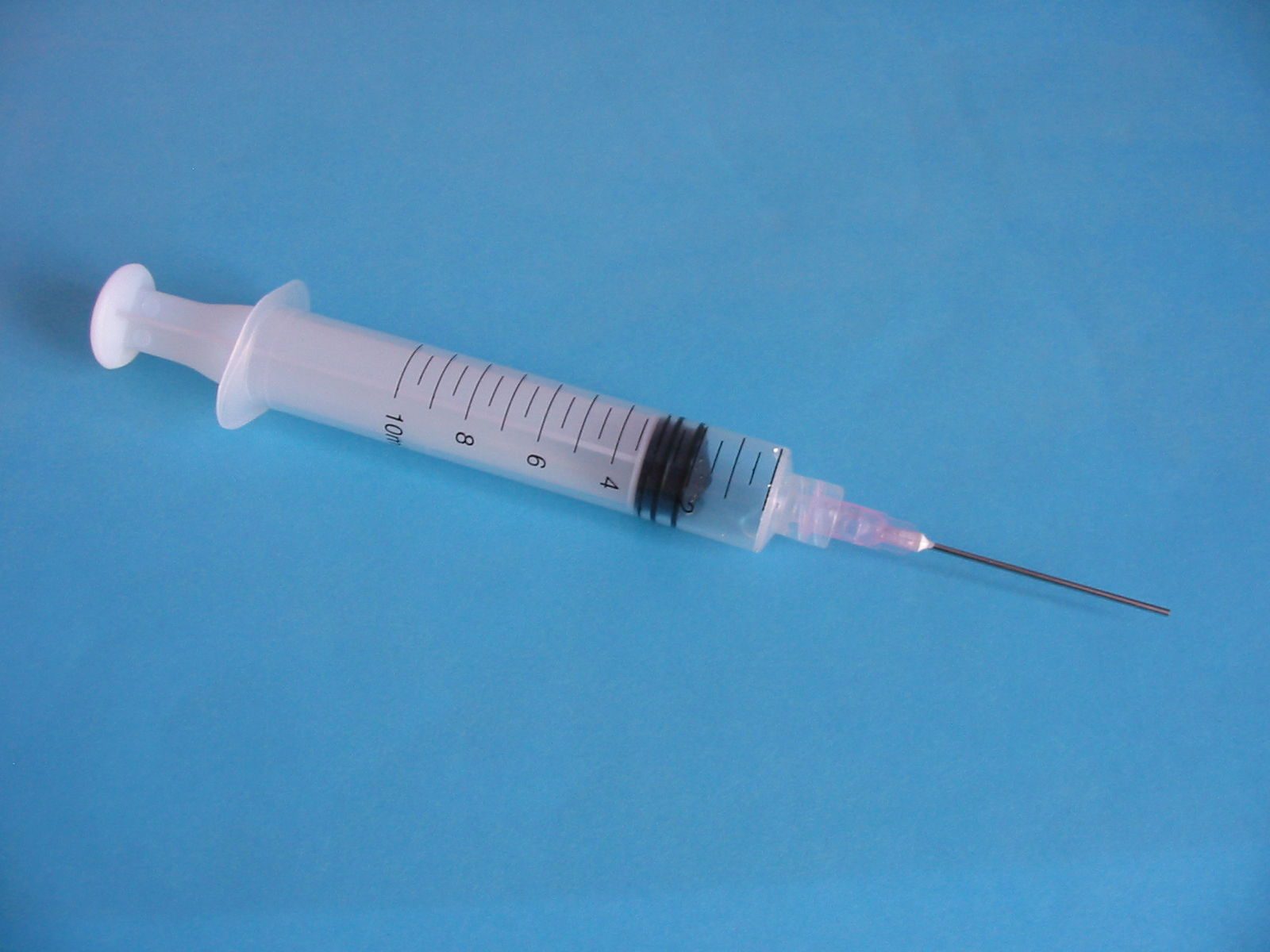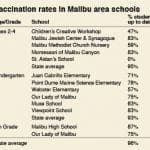Part of the back-to-school routine often includes taking kids to the doctor for check-ups and last-minute shots, but Malibu is one of the few enclaves where 25 to 50 percent of parents appear to be saying “no” to childhood vaccines.
In recent years, many have blamed a spike in autism on ingredients in vaccines, but that information has been disproved through several medical studies, according to the Center for Disease Control. However, the stigma has been hard to shake.
Clusters of non-vaccinated children appear most often in affluent areas, including Marin County, Santa Cruz, Malibu and some private schools. In a 2012 Associated Press survey, Saint Aidan’s in Malibu, Westside Waldorf in Pacific Palisades, Oak Grove in Ojai and Highland Hall Waldorf in Northridge topped the list of the unvaccinated among 1,600 schools.
But opting out of vaccines is a trend professionals stress could have negative impacts on a child’s well-being.
Dr. Jeff Harris, family medicine and pediatrics practitioner in Malibu, said a spike in opting out of vaccinations has been occurring here over the last 10-15 years, and a recent whooping cough outbreak among Malibu High School students might have been prevented with more immunizations.
“Fears over the whole autistic issue had hindered immunizations,” but a suspected link between vaccines and autism has now been scientifically disproven, Harris said. “And vaccines have improved a lot over the past 20 years.”
A general rule of thumb used by public health officials is that a vaccination rate of 90 percent or higher is necessary to prevent disease outbreaks or the vulnerability to disease outbreaks. None of Malibu’s pre-school, kindergarten or seventh-grade classes meet that minimum.
“There were several pertussis [whooping cough] cases at Malibu High School this year that started with kids who weren’t immunized,” Harris said.
California’s Department of Public Health declared a whooping cough epidemic in mid-June, with 4,558 cases so far in 2014 — doubling since 2013, resulting in three infant deaths. In the pre-vaccine era, up to 6,500 cases per year occurred, according to the Center for Disease Control.
Although 93 percent of California’s kindergartners are immunized on average, not a single kindergarten class in Malibu could claim that high a percentage, according to figures obtained from the Department of Public Health.
Schools in Malibu reported 57 percent to 78 percent of kindergartners vaccinated for the 2013- 2014 school year. Figures from the city’s six licensed pre-schools (age 2-4) vary even more, from 0 to 83 percent (see chart). In seventh grade, students were 75 to 87 percent fully immunized.
Cindy Ludwig, pre-school director for Malibu Presbyterian said, “All the pre-schools in Malibu strongly encourage immunizations.”
Sarah Kern, Malibu mother of two young daughters and co-leader of the local La Leche League, sees things differently. She said she and her husband prefer to fully understand a vaccine’s purpose before taking action.
“Vaccines should be considered one at a time and parents should do their own research to determine which vaccines, when and whether or not to vaccinate at all,” Kern said. “I’m disappointed so many pediatricians are committed to a ‘schedule’ rather than talking with parents about each vaccine, the risks and benefits, as well as the need based on a family’s lifestyle and risk of exposure.”
California law mandates that students in public and private schools be immunized, but allows exemptions for personal beliefs.
“I think a lot of people are putting their children in jeopardy,” Harris said. “I think it’s a dangerous situation, but breaking through those belief systems is difficult, and alternative medicine practitioners still reinforce it. I’m all in favor of food without preservatives, etc., but there’s been a carryover to immunizations, where people believe they’re harmful. That culture exists in our community.”
In attempts to buck the anti-vaccine trend, some groups have gotten legislation through the California Assembly. On January 1, 2012, California’s AB499 allowed children ages 12 and over to decide whether to accept a Hepatitis B shot or any other sexually transmitted disease vaccine without parental knowledge or consent.
Bill AB 2109, effective January 1, 2014, now also requires a medical doctor to counsel individuals and sign a form before obtaining a state exemption approval.
Still, Kern and her husband have opted not to get their daughters vaccinated, except for when her oldest one fell and needed stitches.
“The urgent care doctors were very concerned about tetanus,” Kern said, “So she got the tetanus vaccine.”
Otherwise, the couple has not opted for any other vaccinations.
“It seemed unnecessary to expose our very healthy baby to unnatural elements of the vaccines,” Kern said.
“Parents are faced with a lot of pressure to vaccinate their children, but we’re comfortable with our choice to hold off,” Kern said. “If we learn new information, then we’ll reconsider our position.”


